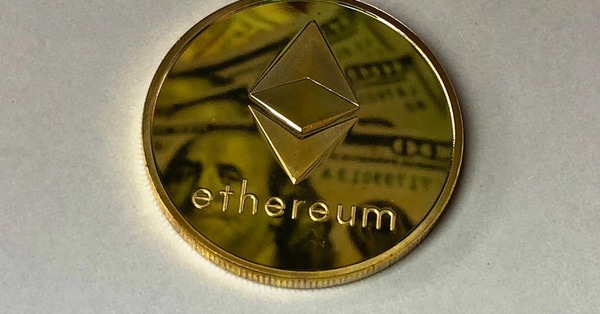Bitcoin Whales vs Retail Investors: Analyzing Market Dynamics
A growing divide in Bitcoin market behavior sees whales offloading assets while retail investors accumulate, raising questions about future price stability.
The cryptocurrency market, particularly Bitcoin, has seen a significant shift in dynamics recently, with large holders, often referred to as 'whales,' continuing to offload their assets while smaller investors ramp up their accumulation efforts. This trend has not only created a noticeable divide in market behavior but has also raised questions about the future trajectory of Bitcoin's price and overall market stability.
Bitcoin whales are entities or individuals that hold large quantities of Bitcoin. According to Glassnode, a blockchain analytics firm, whales are defined as addresses that possess 1,000 BTC or more. These entities have a significant influence on market prices due to the sheer volume of assets they control. As of October 2023, it was reported that these whales have been offloading their holdings at a notable pace, suggesting a strategic exit from the market or a reallocation of their assets.
In contrast to the actions of Bitcoin whales, smaller investors, often referred to as retail investors, have been actively accumulating Bitcoin. This trend can be attributed to various factors, including a renewed interest in cryptocurrency, the ongoing development in decentralized finance (DeFi), and a general bullish sentiment towards Bitcoin as a hedge against inflation. The accumulation by retail investors has been observed through increased trading volumes on exchanges, especially during price dips, which they perceive as buying opportunities.
The divergence between the selling activities of whales and the buying behaviors of smaller investors has created a stark divide in market sentiment. While whales appear to be taking profits and possibly anticipating bearish market conditions, retail investors seem undeterred, exhibiting a strong belief in the long-term value of Bitcoin.

This dynamic is critical in understanding Bitcoin's price volatility. Whales have the capacity to influence market prices significantly. When they sell large amounts, it can lead to rapid price declines, causing panic among retail investors. Conversely, the accumulation by smaller investors can provide support at lower price points, potentially stabilizing the market.
According to data from Glassnode, the number of Bitcoin addresses holding at least 0.1 BTC has reached an all-time high, indicating that more individuals are entering the market. This is a positive sign for the community, suggesting that Bitcoin's adoption is growing despite the bearish actions from larger holders. However, the cumulative selling pressure from whales cannot be ignored, as it has the potential to create headwinds for price recovery.
There are several reasons why Bitcoin whales might be offloading their assets. First, the market has seen substantial volatility in the past year, and many of these large holders might be taking profits after significant price appreciation. Additionally, some whales may be diversifying their portfolios, reallocating funds into other cryptocurrencies, or traditional assets, in response to shifting economic conditions.
Another critical factor contributing to whale selling could be tax implications. With increasing scrutiny from regulators, particularly in the United States and Europe, some large holders might be liquidating assets to avoid potential future tax liabilities. The regulatory environment surrounding cryptocurrencies is evolving, and uncertainty can drive cautious behavior among large investors.
On the flip side, the retail investor perspective is often driven by optimism and a belief in the underlying technology of Bitcoin. Many retail investors are not as concerned with short-term price fluctuations as they are about long-term adoption and utility. The narrative around Bitcoin as 'digital gold' continues to gain traction, especially amid economic uncertainty and inflation concerns.
Moreover, the cryptocurrency community has been proactive in educating new investors about the benefits of holding Bitcoin. Initiatives aimed at demystifying cryptocurrency and showcasing its potential as a store of value have contributed to the growing number of smaller holders. The rise of social media platforms and forums has also facilitated discussions that encourage accumulation among retail investors.

The ongoing actions of Bitcoin whales versus retail investors will have significant implications for the future of the cryptocurrency market. If the trend of retail accumulation continues, it could offset the selling pressure from whales and potentially lead to price stabilization or growth over time. Conversely, if whales continue to sell aggressively, it could create a bearish sentiment that discourages new investors from entering the market.
The contrasting behaviors of Bitcoin whales and retail investors reflect the complexities of the cryptocurrency market. While large holders are currently offloading their assets, smaller investors are stepping in to accumulate. This divide raises critical questions about market stability, future price movements, and the overall health of the Bitcoin ecosystem. As the market evolves, the interplay between these two groups will undoubtedly shape the narrative and direction of Bitcoin in the coming months.
Tags:
Related Posts
Unlocking Blockchain: Your Simple Guide to Understanding It
Curious about blockchain? This beginner's guide breaks it down and explores how this revolutionary tech can enhance your daily life. Dive in!
Your Essential Guide to Choosing a Hardware Wallet
Wondering how to protect your crypto assets? Dive into our guide on selecting the best hardware wallet for your digital fortune!
Unlocking Blockchain: Your Guide to Getting Started
Curious about blockchain? Join me as we unravel this game-changing technology in a simple, relatable way. Let's make sense of it together!
Unlocking Smart Contracts: Your Simple Guide to Blockchain
Curious about smart contracts? Discover how they work and their benefits in this easy-to-follow guide for beginners in the blockchain world!
Unlocking DeFi: Top 5 Platforms for Yield Farming in 2024
Curious about yield farming in 2024? Discover the top 5 DeFi platforms that can help you maximize your crypto profits this year!
Unlocking NFTs in Real Estate: The Future of Ownership
Curious about how NFTs are reshaping real estate? Discover the potential of digital property ownership and what it means for investors today!